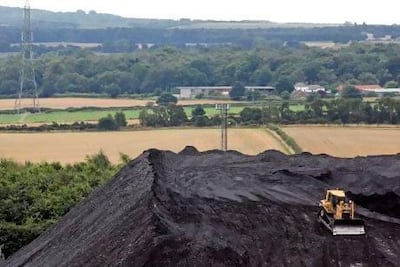Britain has now gone three weeks without using coal for power generation, its longest uninterrupted stretch since the 1880s when Queen Victoria was on the throne.
With most of the population confined to their homes amid the coronavirus lockdown, demand has been lower but the weather - both sunny and windy - has also resulted in increased contributions from renewable energy sources.
The long hours of sunshine led to a second record when the UK generated 9.6GW in electricity from solar farms on April 20.
According to the National Grid’s Electricity System Operator (ESO), “Weather continues to play the central role in determining the mix of electricity, but reduced levels of electricity demand play a role, too.
“Lockdown measures in place since late March have seen a significant reduction in demand across the country, with an increase in domestic consumption being outweighed by reduced industrial demand. The change in demand, along with frequent sunny and windy spells across the country, are all contributing factors to the latest records.”
It is less than three years since the UK’s grid went without coal for 24 hours for the first time as the country sought to rapidly move away from environmentally damaging fossil fuel. Coal’s portion of the power generation mix has dropped from 40 per cent just seven years ago to 2.5 per cent in 2019.
Fintan Slye, the executive director of ESO, said his team had been planning for years to ensure the energy system is "resilient to the challenges that decarbonisation brings".
“2020 is shaping up to be a record-breaking year for Great Britain’s electricity system,” Mr Slye said, “and I’ve little doubt we’ll see more exciting developments as the growth and performance of renewables continues to transform our grid at an astonishing rate.”
“Within a matter of days we’ve seen a new solar generation record, and the longest period of coal-free operation in Britain,” he added.
“That follows two of the greenest months on record at the start of the year, underlining the progress that’s being made towards our target of being able to operate the electricity system entirely with zero carbon sources by 2025.”
However, Mr Slye cautioned that a “zero carbon grid is a stretching target”.
Schools in the UK have closed, public transport use has dipped and non-essential shops have been shut amid the lockdown.
The news comes as the International Energy Agency said that the pandemic had led to “the biggest shock to the global energy system” since the Second World War as demand for power plunged. The IEA said that it would likely translate into a nearly eight per cent annual reduction in carbon emissions - another new record - and a six per cent fall in energy demand.
The agency’s executive director, Fatih Birol, predicted that the energy industry would be “significantly different” in the future.
“Amid today’s unparalleled health and economic crises, the plunge in demand for nearly all major fuels is staggering, especially for coal, oil and gas. Only renewables are holding up during the previously unheard-of slump in electricity use,” Mr Birol said.
But he urged governments to use the opportunity to put renewables at the heart of recovery efforts.
“If the aftermath of the 2008 financial crisis is anything to go by, we are likely to soon see a sharp rebound in emissions as economic conditions improve.”
The fall in pollution is one of the few positives to emerge from the coronavirus pandemic. From Dehli to Venice and other major cities around the world, images have shown how the traditionally polluted areas now have significantly clearer air and water.


